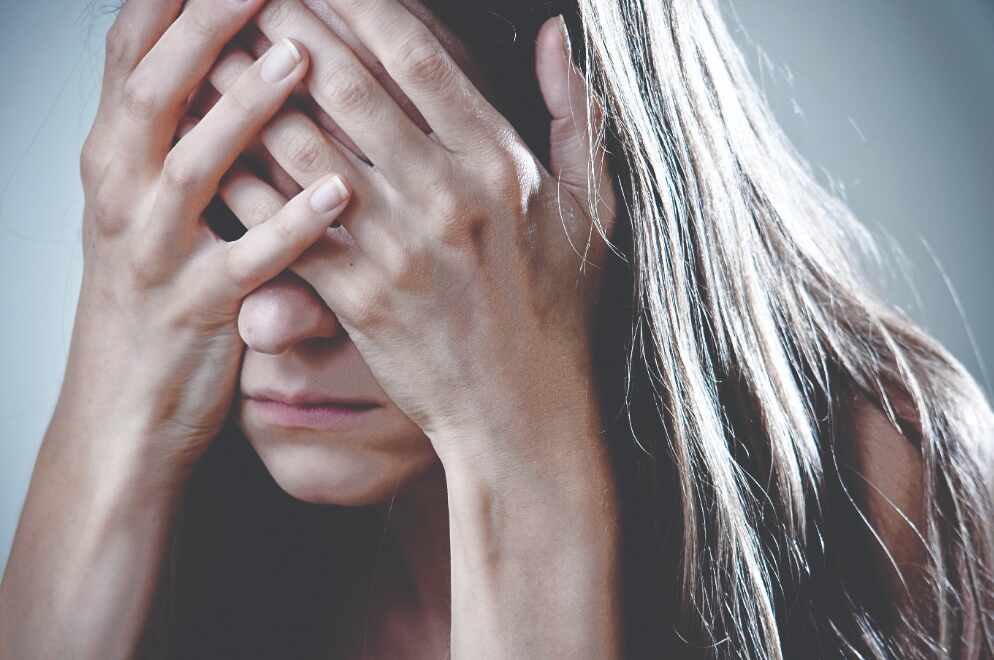Woes of women
Certain mental health issues are exclusive to females — let’s start talking

"Here's to strong women: May we know them. May we be them. May we raise them."
March 8, each year is celebrated as International Women's Day. A day when the world comes together to celebrate the social, economic, cultural and political achievements of women. A big focus is to emphasise gender equality. Even though every woman is special in her own right, did you know that women are far more susceptible to mental health issues/disorders than men?
On this Women's Day, we talk about the various mental health issues that exclusively affect women.
Menarche: The stage at which a girl has her first menstrual cycle comes with a whole range of hormonal, pubertal and emotional changes.
Mood swings, depressive episodes, anxiety related to shame and embarrassment over issues like spotting in public; irregular periods; physical issues like cramps and aches commonly affect women. Premenstrual syndrome (PMS) is seen in as many as 85-90 per cent of women. About a week or two before their period, they get symptoms, such as bloating, headaches, and mood swings. Premenstrual dysphoric disorder (PMDD) is a more severe form of PMS and can disrupt one's work, life and relationships.
Pregnancy and Postpartum: God made women special as they are the only ones who can carry a life within their womb. However, with great power comes greater responsibility.
Hormonal changes during pregnancy and thereafter can lead to mood changes, depression, anxiety and sleep deprivation. After delivery, as much as 60-85 per cent of women report postpartum blues (PPBs) and 10-15 per cent report postpartum depression (PPD). While the former is short-lived and can be overcome with slight lifestyle changes, the latter can require medical intervention. The increased rates of suicide during PPD are a cause of concern. Even those who don't face PPB or PPD may have body image issues.
Menopause: The time when a woman ceases to menstruate and is in between her 40s and 50s, it is common to develop symptoms of depression, loss of sexual drive, loss of self-esteem, changes in appearance. Nurture, care and support from family can help allay some of them.
Depression and Anxiety: Various studies around the world show that women have a higher prevalence of major depression and generalised anxiety disorder than men, as much as 1.7 to two folds.
Body image issues: Women, in general, are overly focused on comparing the size, weight and shape of their body and hold themselves to unrealistic standards of beauty. This has been studied time and again. Body images lead to negative self-talk and poor self-worth.
Why are women more prone to mental health disorders?
Hormones: Biological factors such as lower serotonin levels than men and a wider fluctuation in mood due to the changing hormones during the menstrual cycle.
Socio-cultural influences: Historically speaking, our culture has pegged women to be the primary caregivers for children, stay at home, take roles that require them to be submissive. At times the expectations from women can be unrealistic, making them more susceptible to these disorders.
Gender roles: Women have sadly been the object of sexualization in a variety of scenarios that can affect their self-esteem and self-image.
Stress and expectations: Women are more susceptible to physical and mental stress.
What to do about women's mental health?
Let us normalise talking about women's mental health. Educate men and women about the various tell-tale signs of mental health issues and address them head-on. Finally, empower each woman to take care of herself as much as she does for others.
"She believed she could, so she did." –Unknown Send your questions to [email protected]



